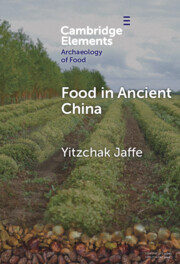Elements in the Archaeology of Food reveals how archaeological research into food illuminates ancient political maneuvers, social networks, risk management strategies, religious celebrations, luxurious pleasures, and much more. Readers will discover the relevance of food archaeology to broader conversations about cultural heritage, environmental conservation, and public health as they explore topics ranging from dietary medicine to globalization to the symbolism of hunted meat; areas from Australia to Sub-Saharan Africa to China; and foods from mollusks to spices to deer. Fifty volumes provide fresh, critical, and authoritative overviews of prominent and emerging topics in food archaeology. Each volume offers a concise but comprehensive ‘taste’ of its topic suitable for professional archaeologists but also written in a style accessible to students, scholars in fields other than archaeology, and other professionals interested in food in the past. Elements in the Archaeology of Food showcases the vibrancy and intellectual diversity of 21st century archaeological research into food.
Biography: Katheryn C. Twiss is an archaeologist who studies ancient foodways in order to learn about social structures in the prehistoric and early historic past. Her primary areas of expertise are southwest Asian prehistory, zooarchaeology, animal management and symbolism, and life in early farming communities. Dr. Twiss wrote The Archaeology of Food: Identity, Politics, and Ideology in the Prehistoric and Historic Past (Cambridge University Press, 2019) and edited The Archaeology of Food And Identity (Southern Illinois University, 2007). She has published on topics ranging from feasting in early farming villages to Mesopotamian ceremonialism.
Email: [email protected]
Biography: Alexandra Livarda studies human-plant interactions through time and what they reveal about agronomy, commerce, social structures, perceptions, and identities in the past, but also how these may impact the present. She specialises in archaeobotany, Aegean archaeology, Roman commerce and is developing new methodological tools for the identification of past agricultural practices. Dr. Livarda has directed or (co)/directed archaeobotanical research in several projects, including some of the most emblematic sites in the Aegean, such as the Little Palace at Knossos and Lefkandi. She has published on a range of topics from the emergence of agriculture to the development of tastes and food commerce in the historic past.
Email: [email protected]
Elements in this series
-

- Element
Food in Ancient China

